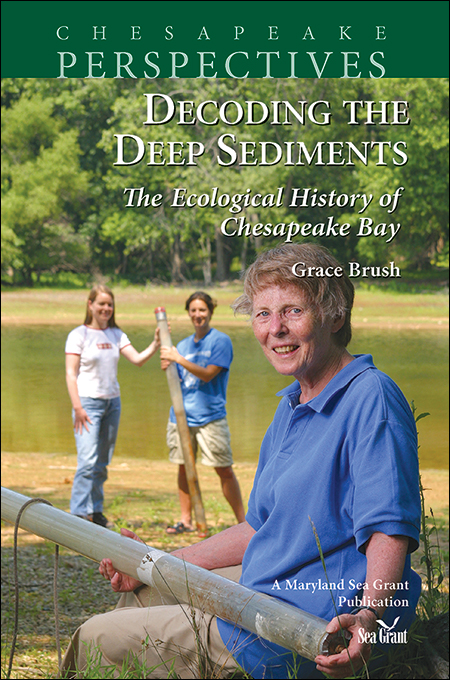Decoding the Deep Sediments: The Ecological History of Chesapeake Bay
Author(s):
Brush, GraceYear Published:
2017Product ID:
UM-SG-CP-2017-01Publisher:
Maryland Sea GrantPrice:
$12.95Page Count:
72 pagesDescription:
The sediments of Chesapeake Bay harbor a record of the Bay's ecology, from its "natural functioning" thousands of years before European colonization through post-Colonial settlement and the continuing forest clearance throughout the watershed. Translating that record into a history of ecological change has been the focus of Grace Brush's paleoecological research at the Johns Hopkins University for more than thirty years.
In Decoding the Deep Sediments, she explains the nature of the studies she and her colleagues have been engaged in and how they analyze the hundreds of sediment cores they have taken throughout the Chesapeake. Their work has demonstrated how the cutting down of trees and large-scale land-use changes have affected the Bay's ecosystem in massive runoff of sediment and nutrients, all of which have contributed to the decline of water quality. A major effect has been the shift from an ecosystem once dominated by benthic processes to one now dominated by pelagic processes.
A professor at Johns Hopkins University, Brush ends the book with cautious optimism about a possible future for the estuary as she looks ahead from this historical view. She predicts that, if the harmful effects of some human activities can be reduced through tree-planting and related efforts, the Chesapeake Bay could eventually transition toward a healthier, benthic-dominated ecosystem like that of its pre-Colonial past.






